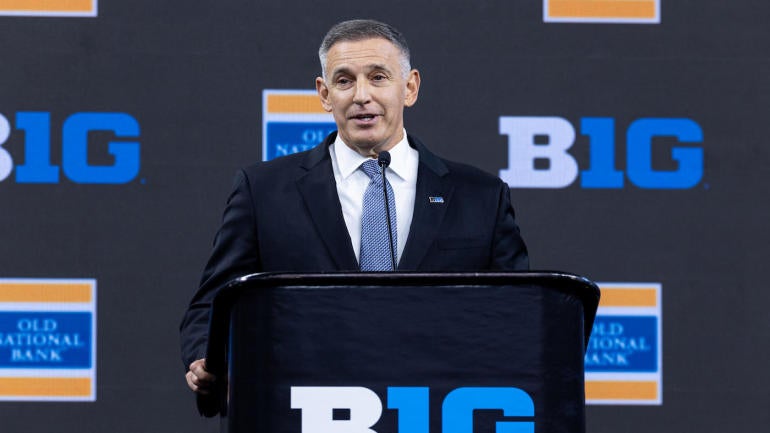
The SEC and Big Ten delivered a coded, read-between-the-lines message to college athletics in a 259-word release on Friday: We got this.
Essentially, the two most powerful conferences on the planet told everyone else to step aside. They're going to figure out the future of college athletics themselves. They're done waiting for Congressional intervention or NCAA action.
The future of college athletics will be at least influenced -- but probably dictated -- by the SEC and Big Ten. They have most of the money, talent, recruiting, facilities and brands at their disposal.
If the process hurts feelings or damages egos, so be it. If that means collectively bargaining with players and paying them for their athletic ability through revenue sharing ... well, that's on the table, too.
The SEC and Big Ten are among those who have waited too long. Now they have the ability to change the landscape themselves.
The joint announcement used careful wording like forming an "advisory group" to address "significant challenges in college athletics." This isn't the announcement of a scheduling agreement or another version of an ill-fated "alliance." The duo is targeting some more significant matters; they made sure to reference "recent court decisions, pending litigation, a patchwork of state laws."
That's really what this is about -- eliminating the consternation about an endless conga line of litigation regarding name, image and likeness, antitrust, transfers, etc.
In essence, the two leagues are aiming to remodel what is left of the collegiate model. Don't like it? Well, you don't have to. If NCAA membership doesn't agree to their reforms, the SEC and Big Ten have the leverage to take their 34 teams and stage their own national championship. The networks and the market itself have told them that is possible, and it's a path which SEC commissioner Greg Sankey has already hinted at in the past.
If that means a velvet hammer -- Friday's release -- leading to a chaotic breakaway of the two leagues, that's an option, too. It's just unlikely to be one that is explored right away. Sankey and Big Ten commissioner Tony Petitti would certainly like to affect change within the system first.
The SEC commissioner has left breadcrumbs leading us to this day. In June 2023, he criticized the composition of the NCAA Board of Governors, calling them out for having too little Power Five representation.
The state of Tennessee this week filed a lawsuit against the NCAA that exposed a horizon where you can see an end to the NCAA if it doesn't change. And if there is no change, the "Power Two" will change it for them.
For his role, Petitti probably just needed time to get on board after taking over as conference commissioner in May. The irony is that, historically, the SEC and Big Ten have been rivals. Former respective commissioners Mike Slive and Jim Delany viewed each other respectfully from a distance, but their legislative and financial interests were strictly their own.
Now, there is too much money and power at stake for them not to join brands. The best rivalries worth watching mostly now reside in these two conferences. Those rivalries translate to television ratings, which translate to revenue. Thank you, conference realignment.
The landscape has forced them together to flex at this moment, so let the mind wander as to the extent of their power grab.
- They could easily combine to carve out a piece of their media rights revenue to share with athletes.
- They could decide -- essentially on their own -- to offer 100 scholarships instead of 85.
- They almost certainly will demand an unequal share of revenue when the new College Football Playoff media rights contract is signed.
- They could sign up a title sponsor for their endeavors to draw in even more revenue. The CFP and Final Four don't even do that.
These behemoths are ready to take over college athletics. If the NCAA can't manage the current mess, they will take it upon themselves. And it's becoming increasingly obvious the NCAA can't handle the current mess, mostly because a large part of the oil spill has been caused by the governing body overseeing college athletics.
The NCAA likes to say it is only enforcing rules as voted on by membership. As sports law attorney Mit Winter recently noted: That doesn't matter when the rules themselves break federal law.
Not a good thing when there are two not-so-new sheriffs in town.
















